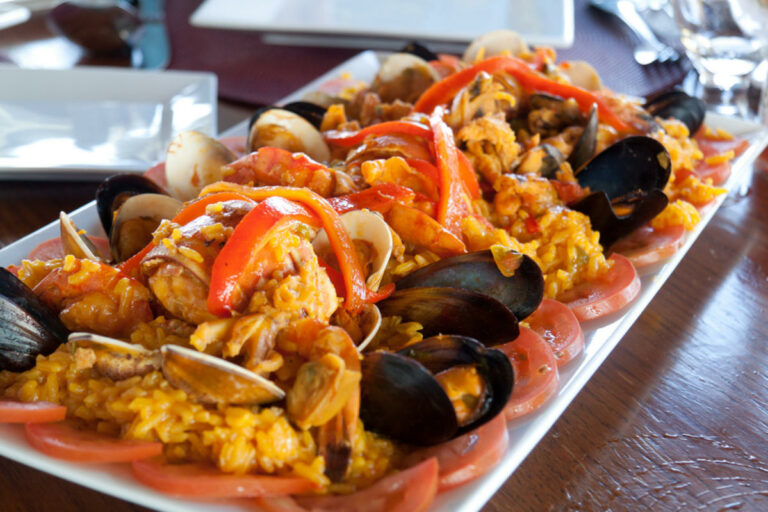Introduction: Tuvalu and Its Cuisine
Tuvalu is a beautiful Polynesian island nation located in the South Pacific Ocean. Its cuisine is heavily influenced by the abundant seafood and tropical fruits that are available on the island. The traditional Tuvaluan diet consists mainly of fish, coconut, breadfruit, and pandanus, which are all used to create unique and flavorful dishes.
Traditional Tuvaluan Dishes: Overview
Some of the most popular and traditional Tuvaluan dishes include pulaka (a type of taro), ika mata (raw fish marinated in coconut milk), and palusami (taro leaves with coconut cream and onions). These dishes are a staple in Tuvaluan cuisine and are often served during special occasions and ceremonies.
Cultural Significance of Tuvaluan Cuisine
Tuvaluan cuisine plays a significant role in the country’s culture and identity. For instance, the use of coconut in many dishes is symbolic of the importance of the coconut tree to the people of Tuvalu, who rely on it for food, shelter, and other essential items. Similarly, the traditional method of cooking food in an underground oven (known as an umu) is a cultural practice that has been passed down from generation to generation.
Ceremonial Dishes and Their Importance
Ceremonial dishes are an essential part of Tuvaluan cuisine. For example, during weddings and other significant events, a feast is prepared, and traditional dishes such as fekei (a type of pudding) and lolo bai (a sweet coconut milk drink) are served. These dishes represent the culture and identity of the people of Tuvalu and are an essential part of their ceremonial traditions.
Ingredients and Cooking Techniques
The ingredients used in Tuvaluan cuisine are often locally sourced and include a variety of fish, coconut, taro, and other tropical fruits and vegetables. The cooking techniques are also unique and often involve grilling, steaming, and baking food in an underground oven. These techniques help to preserve the flavors and nutrients of the food and add to the overall taste experience.
The Future of Tuvaluan Cuisine: Challenges and Opportunities
While Tuvaluan cuisine has a rich cultural history, it faces challenges in the modern world. One such challenge is the availability of ingredients, as many traditional foods are becoming harder to find due to climate change and other factors. However, there are also opportunities for Tuvaluan cuisine to gain recognition and popularity on a global scale as people become more interested in diverse and authentic food experiences.
In conclusion, Tuvaluan cuisine is a unique and flavorful representation of the island nation’s culture and identity. From traditional dishes to ceremonial feasts, Tuvalu’s cuisine has played an essential role in the country’s history and traditions. As Tuvalu faces challenges in the modern world, there is an opportunity for its cuisine to gain recognition and appreciation around the world.

